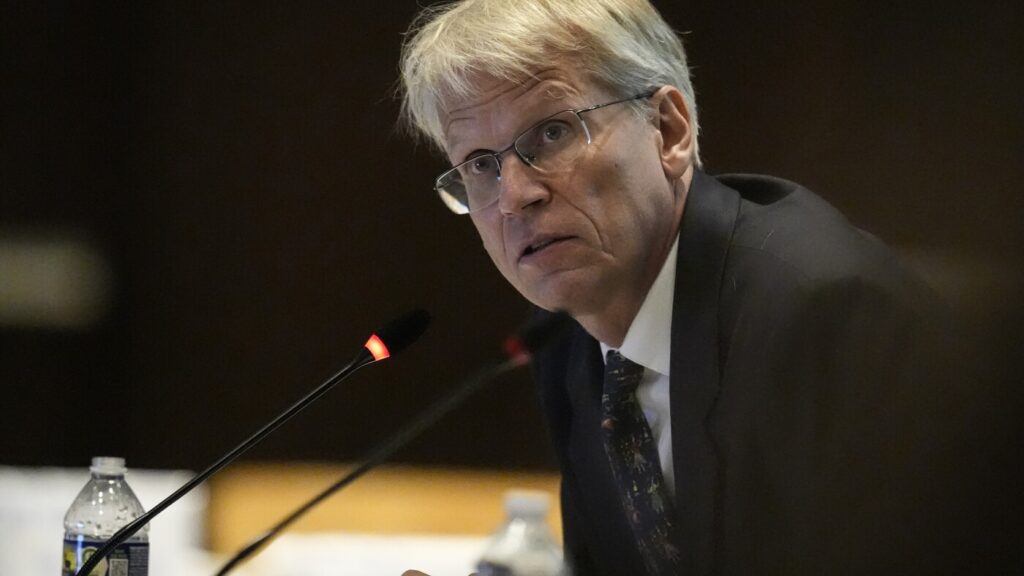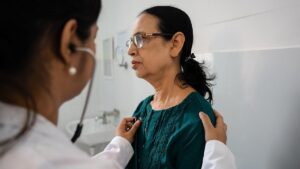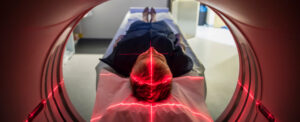
Dr. Martin Kulldorf speaks during a meeting of the Advisory Committee in Immunization Practices at the CDC, Wednesday, June 25, 2025, in Atlanta. (AP Photo/Mike Stewart)
In a significant shift in U.S. vaccine policy oversight, a newly appointed federal panel led by experts selected by Robert F. Kennedy Jr. has announced plans to scrutinize the safety of the childhood vaccine schedule. This development was revealed during the panel’s inaugural meeting at the Centers for Disease Control and Prevention (CDC) headquarters in Atlanta on Wednesday.
The Advisory Committee on Immunization Practices (ACIP), which plays a crucial role in shaping national vaccine policy, has recently become a focal point of controversy. Earlier this month, Kennedy replaced the entire 17-member panel appointed by President Joe Biden with a smaller group, some of whom have been criticized for promoting misleading information about COVID-19 vaccines.
New Focus on Vaccine Safety and Public Trust
Martin Kulldorff, the newly appointed chair of ACIP and an epidemiologist formerly at Harvard Medical School, emphasized the need to “rebuild public trust” in federal health institutions. He cited concerns over what he termed “inflated promises” regarding COVID vaccines and mandates. Kulldorff announced the formation of a new workgroup dedicated to examining the cumulative effects of the recommended vaccine schedule for children.
“The number of vaccines that our children and adolescents receive today exceed what children in most other developed nations receive and what most of us in this room received when we were children,” Kulldorff stated, highlighting the group’s intent to study the interaction effects between different vaccines and the timing of their administration.
Revisiting Long-Established Vaccine Practices
In addition to evaluating the current vaccine schedule, the panel plans to review older vaccines that have not been reassessed in over seven years. This includes examining the universal recommendation for the hepatitis B shot at birth, as well as the immunization protocols for measles, mumps, rubella, and varicella (chickenpox). The timing of the measles vaccine, in particular, will be scrutinized to address religious objections from some parents.
These initiatives have raised concerns among vaccine researchers regarding the future direction of ACIP. Jason Schwartz, an associate professor at the Yale School of Public Health, expressed apprehension that revisiting settled questions around vaccine safety might lend credibility to longstanding vaccine critics.
Controversy and Conflict of Interest Concerns
Kennedy’s decision to overhaul ACIP was driven by his claims of conflicts of interest within the committee, though these claims have been contested. Both Kulldorff and Dr. Robert Malone, another Kennedy appointee to ACIP, have served as expert witnesses in litigation against vaccine manufacturers. However, they assert that they have no conflicts of interest regarding the topics discussed at the meeting.
Malone detailed his extensive vetting process, stating that any potential conflicts have been deemed “lacking” by the Department of Health and Human Services and the CDC. This suggests that Kennedy’s efforts to restructure ACIP may have been planned well in advance, despite the recent appointments.
Data and Implications for Vaccine Policy
The meeting also featured presentations from CDC scientists on COVID-19 and related vaccines, with data challenging recent policy changes by Kennedy and the Trump administration. One key slide highlighted that most hospitalized children under two years old had no underlying medical conditions, with severe outcomes in 25% of cases requiring ICU admission. The data also underscored the vulnerability of children under six months who depend on maternal antibodies due to the lack of approved vaccines for this age group.
“Most children under the age of 2 who are hospitalized had no underlying medical conditions and outcomes among children can be severe, with 1 in 4 admitted to ICU.”
Looking Ahead: The Future of Vaccine Policy
The new direction of ACIP under Kennedy’s leadership raises questions about the future of vaccine policy in the United States. While the panel’s efforts to rebuild public trust and reassess the vaccine schedule may address some public concerns, they also risk reigniting debates over vaccine safety that have long been considered resolved.
As the panel continues its work, the implications for public health policy and vaccine acceptance will be closely monitored by experts and the public alike. The outcomes of these deliberations could significantly influence the nation’s approach to immunization in the coming years.







